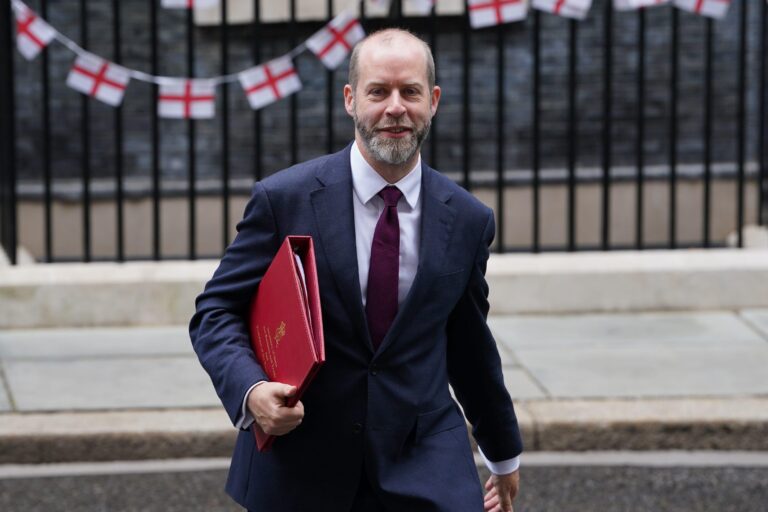The UK trade secretary has sharply criticized the pharmaceutical industry amid mounting tensions over drug pricing negotiations, signaling a tougher stance as talks reach a critical juncture. With the government pushing for more affordable medicines in the face of escalating healthcare costs, the latest comments underscore the challenges in balancing innovation incentives with public budget pressures. As discussions between policymakers and pharma representatives intensify, the sector faces increased scrutiny over pricing strategies and supply commitments.
UK Trade Secretary Criticizes Pharmaceutical Industry During Critical Pricing Negotiations
In a bold move amidst fraught negotiations, the UK Trade Secretary did not hold back in publicly denouncing pharmaceutical companies for what was described as “excessive pricing demands” during ongoing talks. The criticism highlights growing frustration within the government as it seeks to secure affordable drug prices without compromising access to innovative treatments. Officials stressed the need for the pharma sector to prioritize public health interests over profit margins, underscoring concerns about rising healthcare costs burdening the NHS and patients alike.
Key points raised by the Trade Secretary included:
- Lack of transparency in setting drug prices
- Unwillingness to engage in flexible pricing models
- Potential impact on long-term sustainability of healthcare funding
A recent breakdown in discussions has paved the way for increased government intervention, potentially altering the landscape of pharmaceutical negotiations in the UK. Below is a brief overview of the current negotiation status:
| Stakeholder | Status | Key Issue |
|---|---|---|
| UK Government | Firm stance | Cost control |
| Pharma Industry | Demands maintained | Price flexibility |
| NHS | Concerned | Access to medicines |
Implications of Tensions Between Government and Pharma on UK Healthcare Costs
Rising tensions between the UK government and the pharmaceutical industry during ongoing price negotiations are poised to significantly impact healthcare expenditures. The government’s increasingly assertive stance reflects mounting pressure to rein in drug costs amid budget constraints. However, this adversarial approach risks slowing down access to innovative treatments as pharma companies may reconsider market strategies or delay product launches in response to less favorable pricing frameworks. The potential fallout could lead to higher operational costs for hospitals and increased financial strain on the NHS, ultimately affecting patient care.
Several factors compound the complexity of this dynamic, including regulatory unpredictability and supply chain vulnerabilities. Key implications for healthcare stakeholders include:
- Delayed availability of cutting-edge medications due to stalled negotiations.
- Increased administrative burden as NHS entities navigate budget reallocation.
- Potential price inflation in alternative treatments if preferred options become restricted.
| Aspect | Projected Impact |
|---|---|
| Drug Pricing | Heightened scrutiny leads to potential cost savings but risks supply disruptions |
| Patient Access | Possible delays in receiving new therapies |
| NHS Budget | Pressure to reallocate funds towards higher-priced generic or old drugs |
Strategies for Balancing Innovation Incentives with Affordable Medicine Access
In the complex arena of pharmaceutical pricing, the UK government is keen on adopting a multi-faceted approach that safeguards innovation while ensuring medicines remain affordable. Key stakeholders emphasize the importance of dynamic pricing frameworks that incentivize breakthrough therapies but prevent disproportionate cost escalation. Policymakers are increasingly focusing on value-based agreements, where drug prices align with demonstrated patient outcomes, creating a symbiotic relationship between pharmaceutical companies and healthcare providers.
- Enhanced R&D tax credits to reward genuine innovation
- Transparent negotiation processes to build trust between government and industry
- Accelerated approval pathways for critical medicines to reduce time-to-market
- Caps on price increases for essential drugs to prevent affordability crises
| Strategy | Benefit | Potential Challenge |
|---|---|---|
| Value-based pricing | Links costs to outcomes | Measurement complexities |
| R&D incentives | Drives innovation | Risk of misuse |
| Price caps | Protects affordability | May limit investment |
Closing Remarks
As negotiations between the UK government and the pharmaceutical industry continue amid mounting pressure to control drug prices, the Trade Secretary’s pointed remarks signal a more adversarial approach going forward. With healthcare costs under intense scrutiny and the sector’s pivotal role in the economy, the outcome of these talks will be closely watched by policymakers, industry stakeholders, and patients alike. The balance between fostering innovation and ensuring affordable access remains a delicate one, underscoring the complexity of the challenges ahead.




